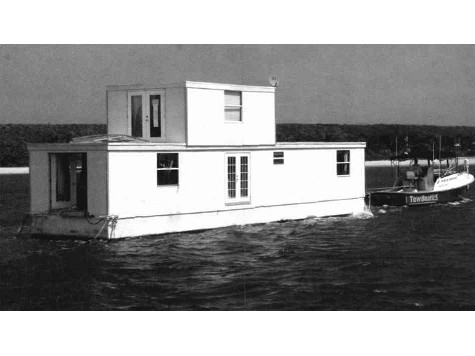
On Jan. 15, the Supreme Court decided a somewhat quirky case about a floating house.
Federal law vests exclusive jurisdiction in the federal courts over maritime cases. As Justice Stephen Breyer wrote for the Court, maritime cases concern, “watercraft or other artificial contrivance used, or capable of being used, as a means of transportation on water. The question before us is whether petitioner’s floating home (which is not self-propelled) falls within the terms of that definition.”
Fane Lozman owned a floating home in Florida, which was moored in one marina, then was towed to another. Lozman didn’t make rent payments to that marina, so the city filed suit in federal court, invoking the Constitution’s exclusive grant of maritime jurisdiction to the federal judiciary.
Lozman argued the district court should dismiss the case because his floating home does not fall within the definition given above and thus is not subject to maritime law. Any disputes should go to state court instead, to be governed by Florida property and contract laws.
In Lozman v. City of Riviera Beach, the Court held in a 7-2 decision that floating houses are not vessels and therefore are outside the Constitution’s Article III grant of jurisdiction to federal courts.
Breyer reasoned that, “Not every floating structure is a ‘vessel,'” citing wooden washtubs, plastic dishpans, and swimming platforms as things that float on water that people can sit on but nonetheless are outside the federal government’s maritime reach. Breyer said that courts must take a practical approach on whether such objects are capable of being used as transportation, not a theoretical approach.
Examining Lozman’s home, Breyer noted that it had no motor; it can only move if towed by a boat. It also needed to be hooked up to power outlets on a pier and needed to be moored to have basic utilities. It had a flat, unraked hull that’s not designed to cut through water. It’s essentially a big box floating on water.
The justices clarified that courts must look to an object’s purpose to determine if it’s a vessel. The majority agreed that courts should not try to figure out every homeowner’s personal intent. Instead, courts should look to the object’s physical features and behavior, such as noting that a floating house doesn’t act like a boat out on the water.
Justice Anthony Kennedy dissented in this case, joined by Sonia Sotomayor. They agreed the lower court used a faulty standard but thought the case should now be returned to the lower courts for more fact-finding to determine whether the home should be considered a vessel.
Federal jurisdiction defines the reach–and thus the power–of the federal courts. Those courts are one of the three branches of the federal government. In an age of federal overreach into people’s lives, it’s encouraging to see a clarification of another limit on federal power, even if it’s one most Americans don’t run into regularly.
Breitbart News legal contributor Ken Klukowski is a fellow with the American Civil Rights Union.

COMMENTS
Please let us know if you're having issues with commenting.